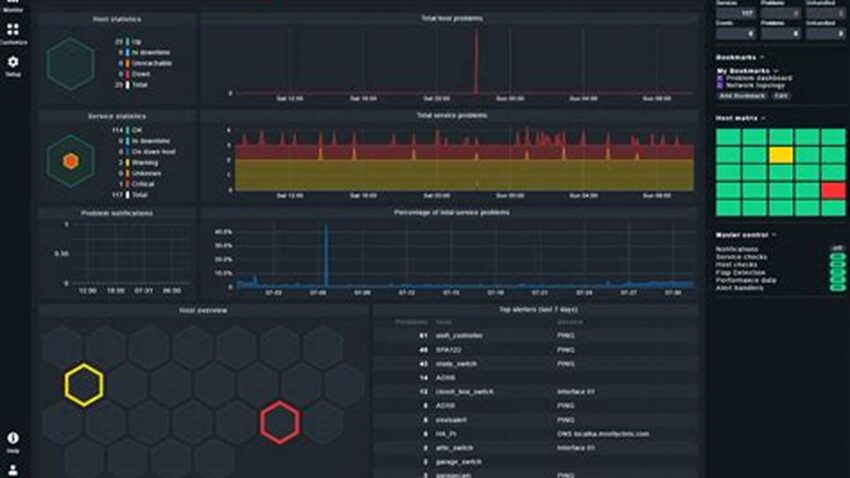Maintaining a website’s reliability and performance is crucial for any online presence. Unforeseen downtime can lead to lost revenue, damaged reputation, and frustrated users. Fortunately, tools exist to simplify the complex task of website monitoring, and Uptime Kuma stands out as a powerful yet user-friendly option.
Simplified Setup and Configuration
The application offers a straightforward installation process and an intuitive interface, allowing administrators to quickly begin monitoring their websites without extensive technical expertise.
Comprehensive Monitoring Capabilities
From HTTP checks to more advanced protocols like ping, DNS, and push notifications, the platform provides a wide range of monitoring options to suit diverse needs.
Real-time Alerting
Downtime incidents are immediately communicated through various channels, including email, Slack, and Discord, enabling swift corrective action.
Open-Source Advantage
Being an open-source project fosters community contributions, ensuring continuous improvement, feature additions, and readily available support.
Customizable Status Pages
Users can create personalized status pages to keep their audience informed about website availability and performance, enhancing transparency.
Multi-Language Support
The platform caters to a global user base with its multi-language capabilities, making it accessible to a wider audience.
Detailed Reporting and Analytics
Historical data on uptime and downtime provides valuable insights into website performance trends, facilitating proactive optimization.
Flexible Deployment Options
Whether deployed on a personal server, in the cloud, or using Docker, the application adapts to various hosting environments.
Active Community and Support
A vibrant community and comprehensive documentation provide ample resources for troubleshooting and seeking assistance.
Tips for Effective Monitoring
Configure appropriate monitoring intervals. Tailor the frequency of checks to the criticality of the website, balancing resource usage with timely detection.
Diversify notification channels. Implement multiple alert methods to ensure that downtime notifications are received promptly, even if one channel fails.
Utilize status pages effectively. Keep users informed about website status and maintenance schedules through clear and concise status updates.
Regularly review performance data. Analyze historical uptime and downtime data to identify potential issues and optimize website performance.
Frequently Asked Questions
How does it compare to other monitoring tools?
It offers a compelling combination of ease of use, comprehensive features, and open-source flexibility, making it a strong contender against both free and commercial alternatives.
What technical skills are required for setup?
Basic server administration knowledge is beneficial, but the intuitive interface and readily available documentation make it accessible to users with varying technical backgrounds.
Is it suitable for monitoring complex web applications?
Yes, its support for various protocols and customizable checks makes it suitable for monitoring a wide range of web applications, from simple websites to complex APIs.
What are the costs associated with using it?
As an open-source project, the software itself is free to use. However, users will need to consider the costs associated with hosting and any potential premium features or support services.
How can I contribute to the project?
Being open-source, contributions are welcomed. Users can contribute through code development, documentation updates, translations, and community support.
By proactively monitoring website availability and performance, businesses can mitigate the negative impacts of downtime, ensuring a positive user experience and maintaining a strong online presence. Uptime Kuma empowers users to achieve this with its user-friendly approach and robust feature set.

